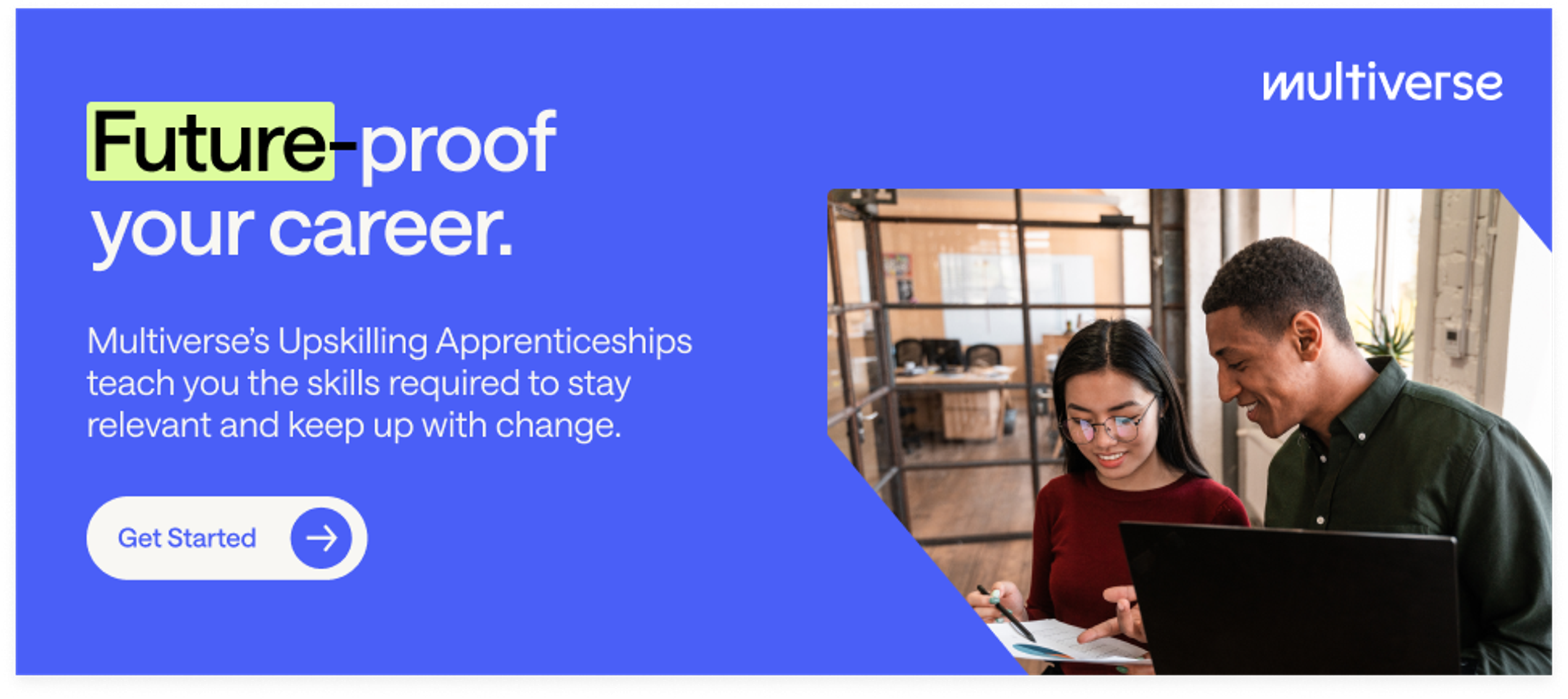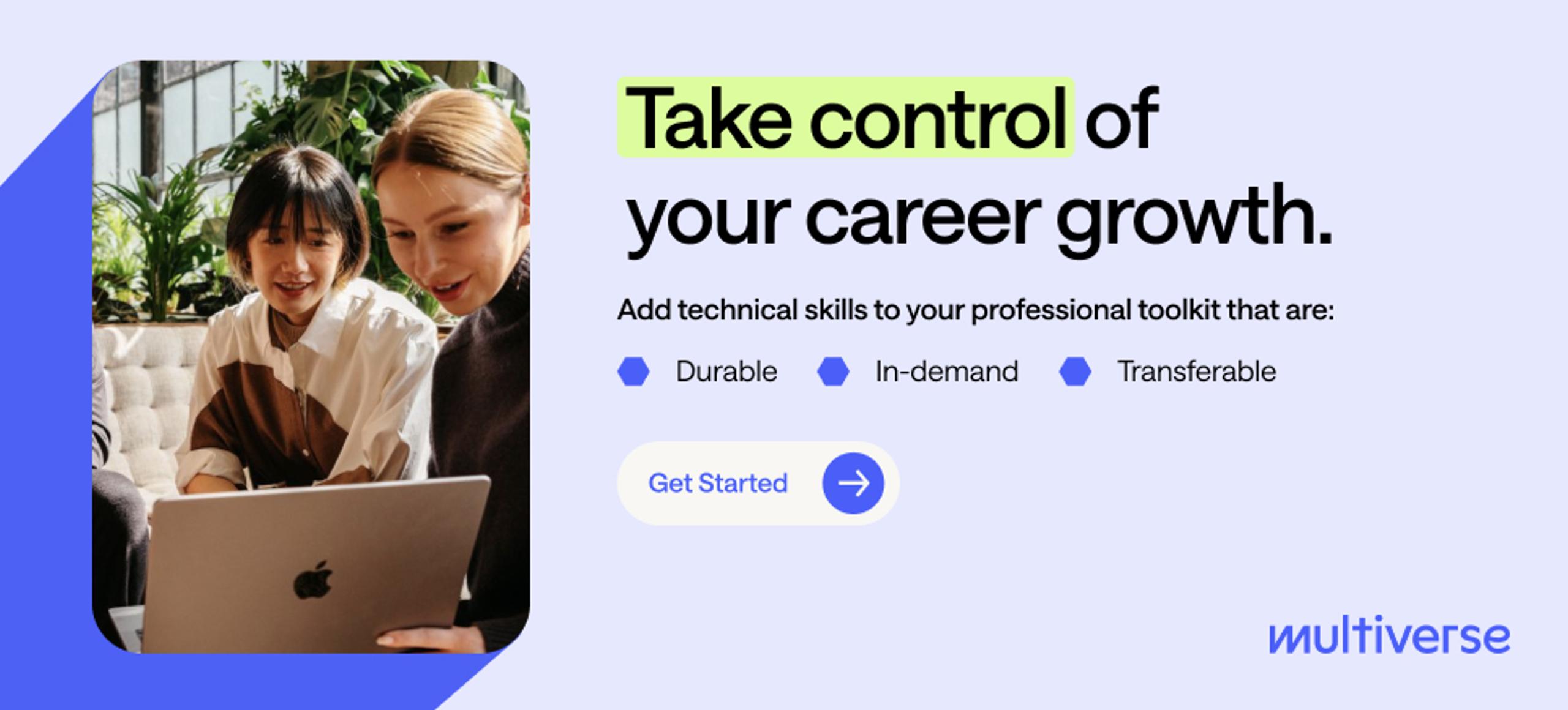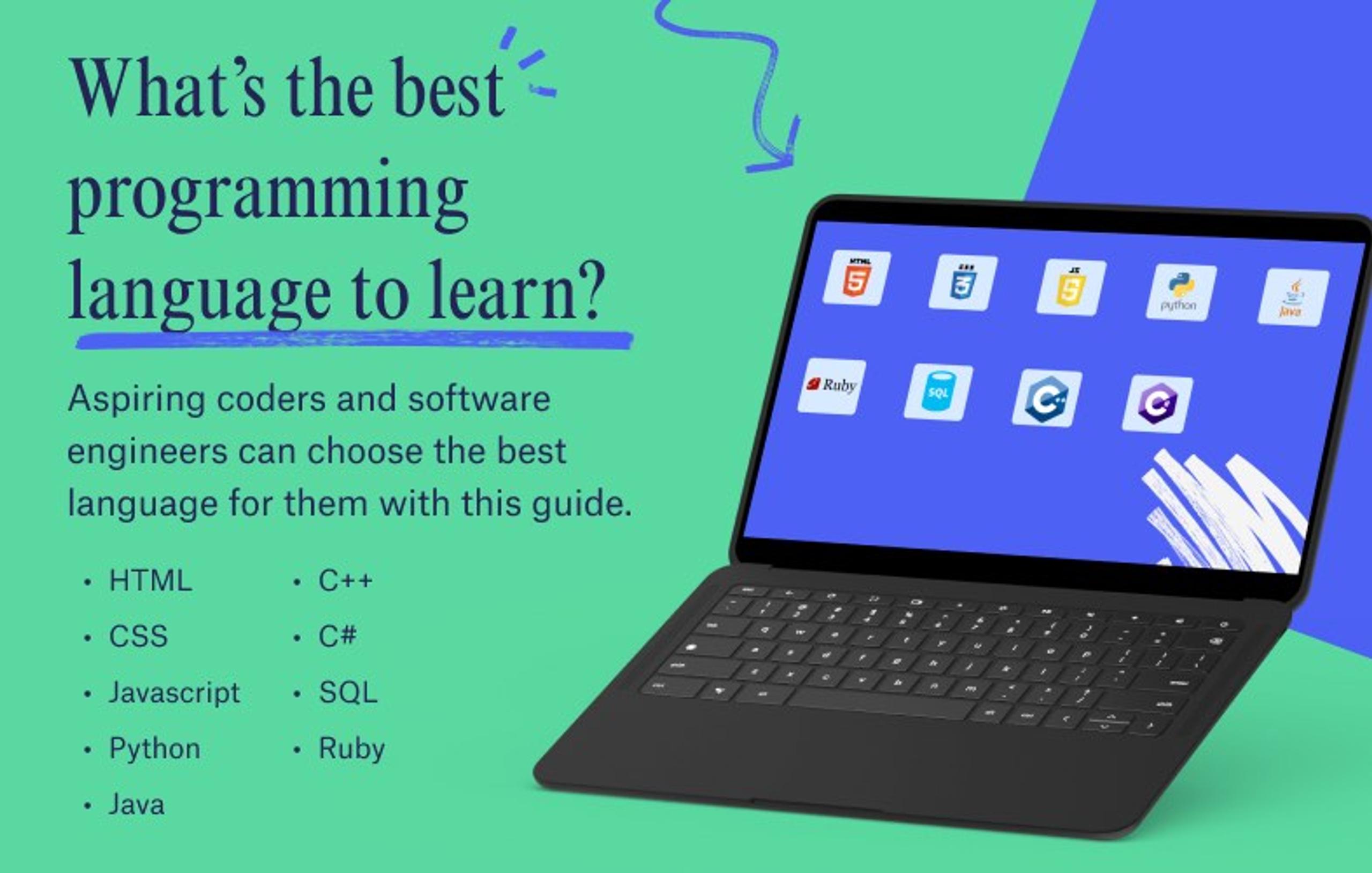"Learn how to code" is the most common advice for aspiring tech professionals. Yet, how long does it take to learn coding?
The answer to this question varies depending on who you ask. A Full-Stack Developer codes the front and backends of websites, so they need to know multiple programming languages. It could take a year or more to gain the necessary skills. By contrast, Data Scientists use SQL to build and manage databases. You could learn SQL in three weeks.
In this article, we’ll cover how long it takes to learn to code. We’ll also share tips on how to learn faster and start your coding career.
How long does it take to learn coding?
The time it takes to learn coding depends on many factors, like how frequently you can study. But here’s the short answer — it can take as little as three to six months to start coding.
If you’re a complete coding beginner, start with the basics. HTML is easy and it’s what most developers learn first. Developers use HTML to structure web pages with headings, tables, and other features. It’s what goes on a page. However, learning HTML alone isn’t enough to create websites and other applications.
Developers combine HTML with CSS to design pages by adjusting font color, size, and more. Using them together, you can create well-designed web pages. To build functional web pages, where users can click, purchase, and take other actions, you need JavaScript too.
As you expand your coding skills, you can tackle more complex languages like Java or Python. You can also start applying your knowledge by creating mobile applications, websites, and other coding projects.
To choose the best programming language to learn, write down your career goals and the types of projects you want to build. For example, Game Developers frequently use C++ and Java to build high-performance video games. Developers who build mobile applications need to know Java and Python.
How to learn to code faster
To learn how to code quickly, college isn’t always the best option. Here are some strategies to learn to code faster (and with little to no cost).
1. Leverage frameworks
Programmers frequently use frameworks to code. Frameworks help you learn to code faster because they increase efficiency. You don’t need to code a project from scratch. Instead, you can use a framework to take care of basic tasks like generating headers and footers.
Frameworks are easy to adapt with your own code and have built-in security functions. They often have support teams to help you troubleshoot problems, and can eliminate duplicate code that slows down applications.
Here are a few examples of frameworks for popular programming languages:
- React JS - JavaScript framework and library
- Ruby on Rails - framework for Ruby
- Django - a Python framework
2. Practice coding early on and consistently
While frameworks and other tools can be helpful, they can’t replace practice. Like learning an instrument, becoming proficient at coding requires consistent effort.
These resources can help you practice your skills regularly:
- Coding challenges - Websites like Coderbyte(opens new window) provide thousands of free coding challenges based on interview coding tests. The challenges have varying difficulty levels, and you can search for tests that use the skills you need to practice.
- Practice briefs - Websites like Briefup(opens new window) and FakeClients(opens new window) have hundreds of briefs. You can use the briefs to build practice projects—similar to those for real clients—and feature the projects in your portfolio.
- r/dailyprogrammer - The subreddit r/dailyprogrammer(opens new window) contains almost 400 daily coding challenges. Other users post their solutions and ask questions in the comments. While this subreddit is no longer updated, its library of challenges can keep you busy for months.
If you use these websites to practice coding for 15 to 30 minutes daily, you can quickly sharpen your skills.
3. Use ChatGPT and other AI tools to your advantage
You can leverage artificial intelligence tools to learn faster and do your job more efficiently. The AI chatbot ChatGPT(opens new window) is a resource to help Software Developers, coders, and other tech professionals write and improve code. Here are a few ways ChatGPT can help you learn to code quickly:
- Detect errors - You can use ChatGPT to find errors in your code instantly. The AI even suggests ways to fix these mistakes.
- Research coding concepts and tools - ChatGPT can answer your questions about programming languages and tools. For example, you can ask the AI for information about Python or for advice to solve a coding problem.
- Get explanations for code - Studying other people’s code is an effective method to learn to program, but you may not always understand how certain functions work. You can give ChatGPT code samples and ask the AI for a detailed explanation.
Don’t treat ChatGPT as a substitute for learning the core principles and foundations of good programming. No one fact-checks the AI’s answers except for the user, and it's possible for ChatGPT and tools like it to hallucinate incorrect responses. Despite these limitations, ChatGPT can be a valuable resource for programmers.
4. Join a coding program
You don’t need four years of university to code professionally anymore. Many programmers prefer coding bootcamps or apprenticeships over a traditional computer science degree. Programs like these help you learn coding faster and more affordably than college — all while gaining real-world skills.
Self-teaching vs. a coding program
The best method to learn how to code depends on several factors, including your dedication and schedule.
Self-teaching can be flexible, so you can learn at your own pace. In some cases, you can find free courses online. However, it takes a lot of discipline to study alone consistently.
Typically, you’ll learn to code faster and more accurately with a coding program. Here are a few reasons why joining a program like Multiverse can be a better experience.
1. Knowledge gaps
If you learn independently, you’re responsible for creating your own curriculum. As a beginner, you’ll likely have gaps in your knowledge without realizing it. For example, you may know that you need to learn JavaScript to develop the frontend of a website. However, you may not know the most efficient way to learn it.
Becoming a Web Developer involves more than learning a programming language. Developers also consider accessibility and user experience standards so visitors can easily navigate websites. They may learn strategies to conduct audience research and identify pain points.
Following a curriculum created by experts is the best way to develop a comprehensive skill set.
2. Programming languages
There are hundreds of programming languages, so it can be hard to know which you should prioritize. Coding programs can help you choose the best programming languages to learn based on your interests and career goals.
3. Quality and credibility
Many online resources can help you learn coding, but it’s hard to tell if a free or paid course is high-quality.
You could spend time on a course that teaches outdated or incorrect methods. A coding program typically offers a higher quality of instruction. Look for a program led by instructors who have recent professional experience in the field.
4. Instructor feedback and coaching
Many online coding courses don’t offer instructor support. You watch the courses on your own time. Most online course instructors, especially for free courses, don’t review your work or give you feedback. As a result, you won’t know when you make mistakes or how to improve.
To get around this, prioritize bootcamps, apprenticeships, or other learning programs that provide value feedback and individual coaching.
5. Staying consistent
It can be challenging to find the motivation and time to learn how to code. If you teach yourself, no one will check your progress to make sure you’re staying on track. A coding program has a schedule and deadlines to keep you accountable.
Skills and tools to learn coding (for beginners)
The exact skills and tools you’ll need to know can vary depending on your career and employer. Learning these skills can help you start coding and get a high-paying job.
- Debugging - Programmers need to know how to identify and fix errors in software code with debugging tools.
- GitHub - Use this platform to store code. You can also share your work with other programmers and study others’ code to learn new strategies.
- Linux commands - Many programmers prefer the Linux operating system because it’s customizable and fast. Studying Linux commands makes it easier for you to troubleshoot errors in your applications.
- User Experience (UX) Design - Learning basic UX design principles will help you design accessible products for all users.
- Visual Studio Code - This coding editor lets you write code in any programming language. The tool has a built-in debugger that catches errors and recommends how to correct them.
Become a coder
Learning to code can help you launch a career in data science, software engineering, and other tech areas. You can learn many programming languages in weeks or months with dedication and the right resources. These skills could translate into a career as a Software Engineer, Web Developer, or another high-paying job.






